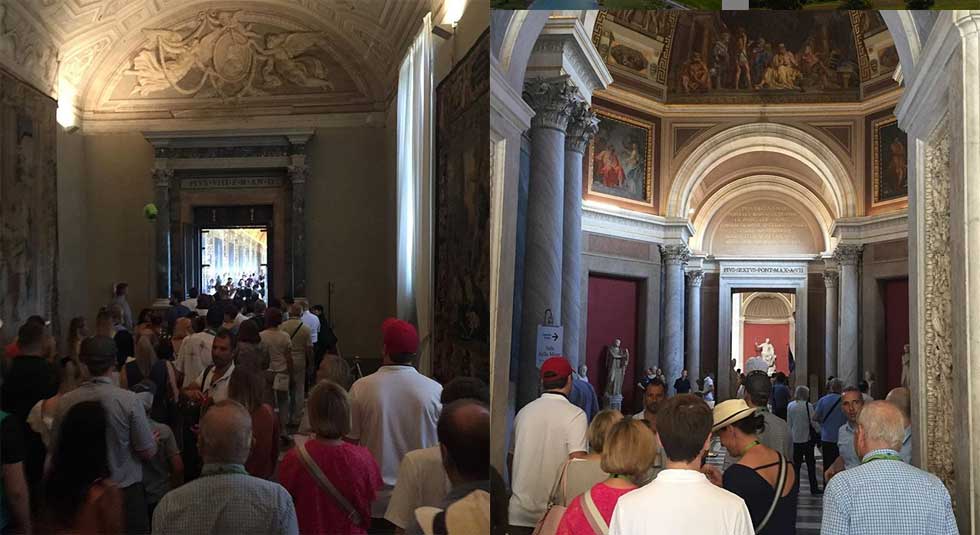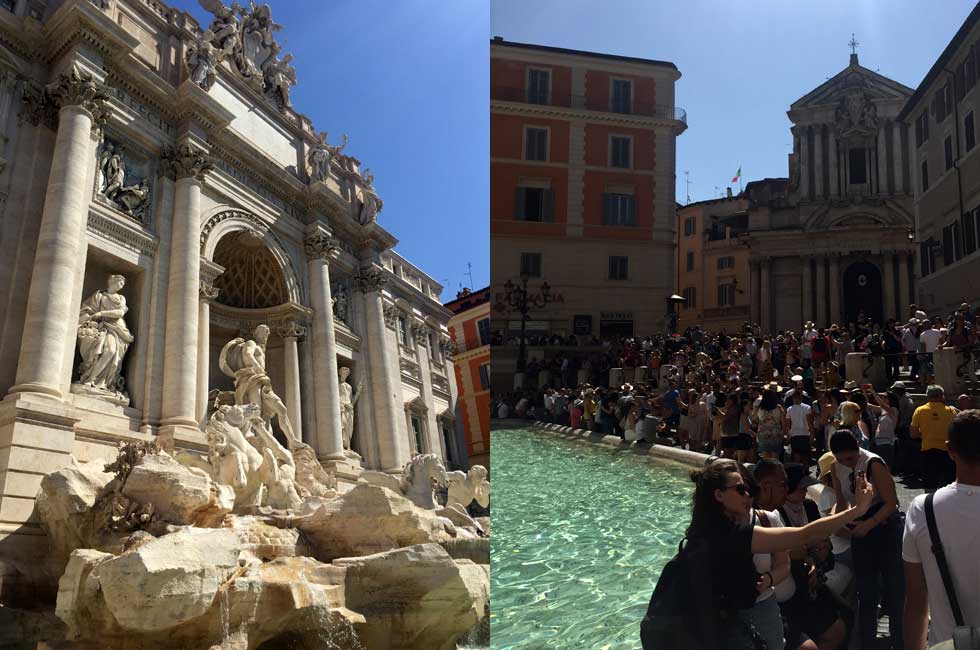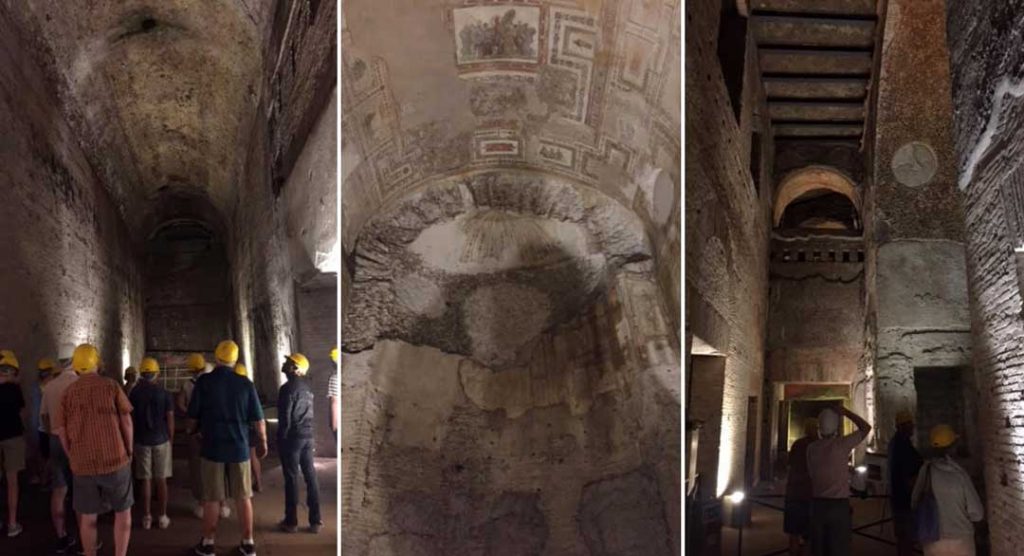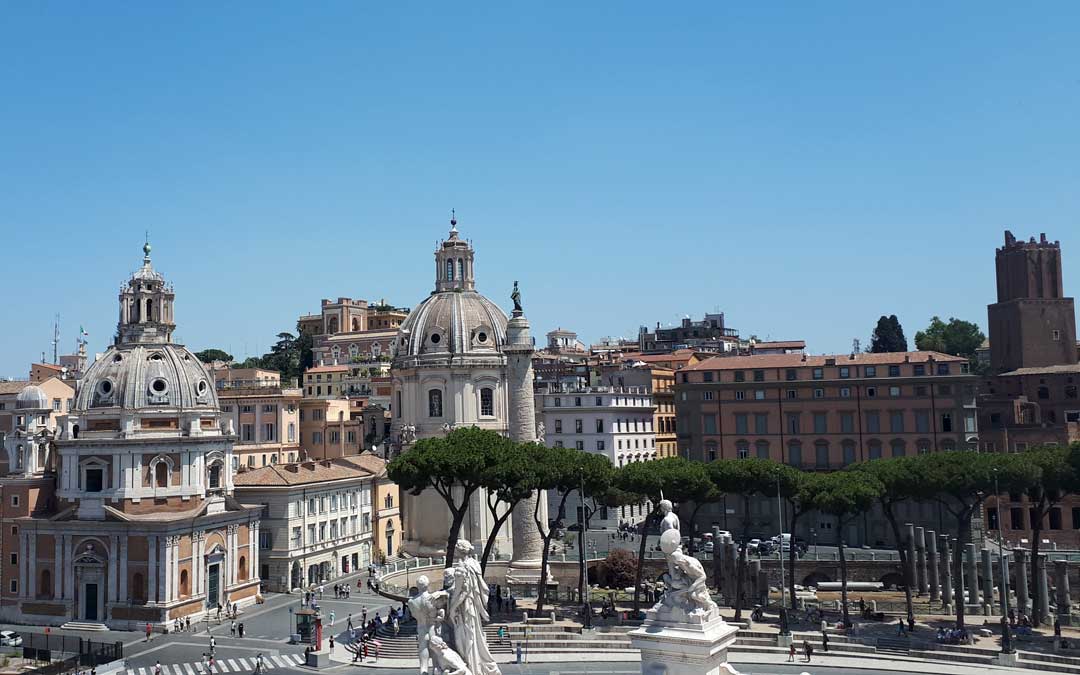To plan a meaningful corporate event in Rome, international companies should explore authentic, lesser-known cultural sites and experiences that go beyond mass tourism. Working with a local sustainable event planner helps create a positive impact on the destination, while offering attendees enriching, crowd-free activities rooted in local heritage.
Why is overtourism a problem for corporate events in Rome?
Overtourism leads to overcrowded attractions, environmental degradation, and a loss of authenticity—conditions that can negatively affect the quality of your corporate event. From long queues at the Vatican Museums to chaotic scenes at the Trevi Fountain, mass tourism can diminish the attendee experience and distract from your company’s goals.
At Italian Special Occasions DMC, we advocate for “educated travel,” where events support local heritage, communities, and sustainability through thoughtful planning and site selection.

How to host a corporate event in Rome without contributing to overtourism
1. What are the best lesser-known historical sites in Rome for events and visits?
Rome is full of alternative locations that offer historical depth without the crowds:
- Basilica di San Clemente: A three-layer archaeological site showing Rome’s evolution from pagan temples to Christian basilicas.
- Domus Aurea: Emperor Nero’s hidden palace, an immersive archaeological wonder.
- Ostia Antica: An ancient Roman harbour town, ideal for off-site visits and educational tours.
- Terme di Caracalla: Vast, open-air spa ruins perfect for outdoor gatherings and artistic performances.
These venues provide depth and intimacy for cultural and team-building experiences, away from the masses.
2. What art venues in Rome offer authentic cultural experiences for delegates?
Instead of limiting art tours to mainstream museums, consider:
- Galleria Doria Pamphilj: A privately-owned palazzo with artworks by Caravaggio, Titian, and Raphael, and a rich family history.
- Galleria Borghese (in non-peak hours): An elegant villa surrounded by gardens, fantastic for tailored private tours.
These venues allow guests to connect with Rome’s artistic legacy while avoiding the sensory overload of more touristy sites.
3. Why should you allocate more time to explore Rome?
Rome’s layers of history deserve more than a rushed, 2-day itinerary. We recommend staying for at least 4 to 7 days to:
- Discover its diverse neighbourhoods
- Engage with local artisans and businesses
- Experience slow travel through curated, immersive activities
This approach allows your attendees to connect meaningfully with the destination, creating a memorable and impactful event.

The role of event planners and DMCs in fighting overtourism
As sustainable event planners, we carry a responsibility to:
- Educate clients and attendees on lesser-known destinations
- Propose alternative venues and timelines
- Partner with local businesses and guides
- Promote seasonal and regional food
This not only enhances the attendee experience but also ensures events contribute positively to the local economy and cultural preservation.
Ready to plan a corporate event in Rome that goes beyond the ordinary?
Contact Italian Special Occasions DMC to create a sustainable, authentic, and unforgettable experience for your team.

FAQ: Sustainable Event Planning in Rome
Q: Can I plan a corporate event in Rome without including the Vatican or the Colosseum?
A: Absolutely. Many lesser-known venues and attractions offer just as much historical and cultural value, often in a more engaging and peaceful setting.
Q: What kind of experiences can reflect authentic Roman culture?
A: Visits to private palaces, underground archaeological sites, artisan workshops, or sustainable vineyards near Rome provide hands-on cultural engagement.
Q: Is it possible to organise sustainable team-building activities in Rome?
A: Yes. Activities like local cooking classes, art restoration workshops, and storytelling tours with historians align with sustainable goals and support local communities.
Q: How can we ensure our event supports the local economy?
A: Hire local vendors, choose family-run venues, include seasonal cuisine, and collaborate with guides and artisans who live and work in the region.




